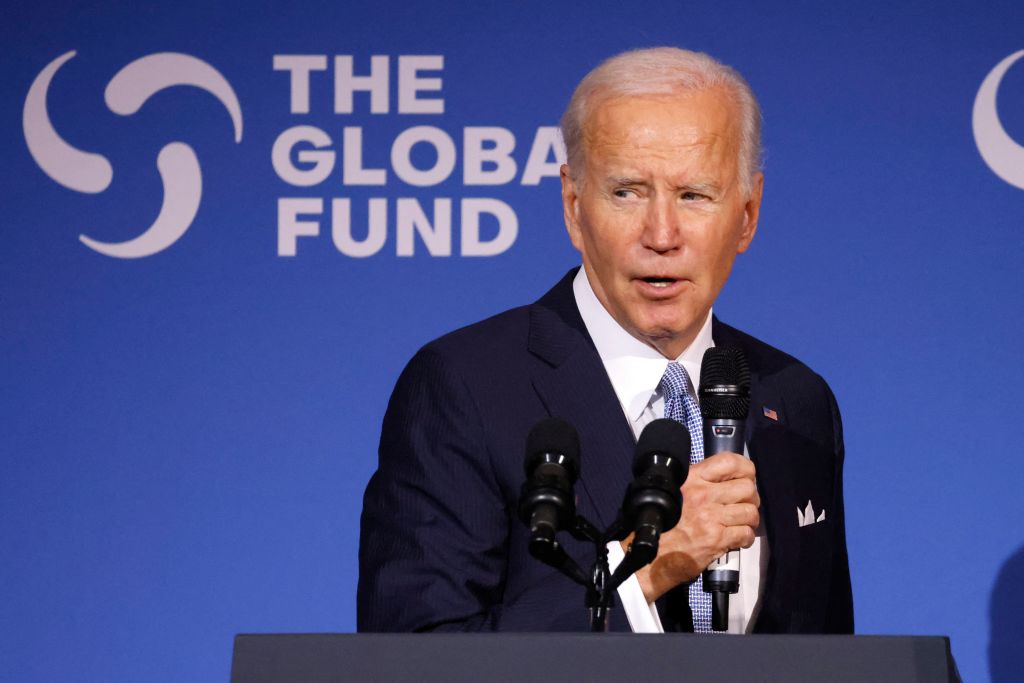Americans who thought student loan forgiveness was a tax-free windfall might have to think again, depending upon where they live.
The American Rescue Plan ensures that no federal tax liability accrues for any loan forgiveness between 2021 and 2025. The same is not true of all states, or of counties that have an income tax, according to CNBC. That could trigger an issue for former students who are getting out of paying back up to either $10,000 or $20,000 in student loans.
The Tax Foundation offered a list of seven states that are likely places where the loan forgiveness could be treated as taxable income. It initially estimated 13 states might tax the loan forgiveness as revenue.
The latest list includes Arkansas, California, Indiana, Minnesota, Mississippi, North Carolina and Wisconsin, noting in its report that laws could change and that regardless of where they live, anyone impacted by loan forgiveness should investigate the laws in their state.
California state Assembly Speaker Anthony Rendon and Senate President Pro Tem Toni Atkins recently vowed that California would pass legislation to waive state taxes on the loan forgiveness in 2023.
“Once the federal government finalizes details of the student debt relief program, we will know whether the relief is tax exempt under current California law,” Senate President Pro Tempore Toni Atkins and Assembly Speaker Anthony Rendon said in a joint statement Sept. 9, according to the Longview News-Journal. “If not, we will make the relief tax exempt through immediate action in early 2023.
“Rest assured, one way or another, California will not tax the federal student debt relief.”
In its report, CNBC said that for now, Indiana residents would owe a state and possibly a county tax.
“As this law is clearly defined, there is no need for additional administrative rules,” a representative of Indiana’s Department of Revenue told CNBC. “Any legislative change must come from the General Assembly.”
Scott Hardin, a representative of the Arkansas Department of Finance and Administration told CNBC that the tax question won’t be settled until the state’s legislature returns in January.
“It would be inaccurate to report student loan forgiveness will be taxable in Arkansas as we won’t be certain until the legislative session is complete,” he said.
Minnesota officials are examing the possibility of waiving taxes on student loan forgiveness, according to ValleyNewsLive.
CNBC said Mississippi has confirmed it will tax the loan forgiveness as income.
An Aug. 31 statement from the North Carolina Department of Revenue is clear, noting that “student loan forgiveness excluded pursuant to IRC 108(f)(5) is currently considered taxable income in North Carolina.”
However, North Carolina Gov Roy Cooper would like to strike his state off the list of states that will tax loan forgiveness.
“Legislative leaders need to find a solution that treats student loan forgiveness the same way they handled the PPP loan forgiveness that many of them received. Republican legislators were quick to help businesses and should now fix this fundamental unfairness for many hardworking people who will get hit hard by this,” he said in a statement.
Wisconsin could also take action, a representative of the Wisconsin Department of Revenue told CNBC.
“We will certainly address this discrepancy with federal law in our upcoming biennial budget request in an effort to ensure Wisconsin taxpayers don’t face penalties and increased taxes for having their loans forgiven,” the representative said.
Eric Bronnenkant, a certified financial planner, certified public accountant and head of tax at Betterment, told CNBC that only a few states are impacted because only 13 states make their own tax rules separate from the federal tax code.
Thirty-seven states “choose to have conformity with the federal tax system, have conformity with specific federal legislation or create their own specific exceptions and exclusions,” Bronnenkant said.
The other 13, he said, can change the rules through “legislative changes or administrative decisions by state tax authorities.”
This article appeared originally on The Western Journal.

























 Continue with Google
Continue with Google